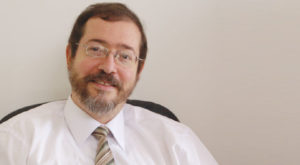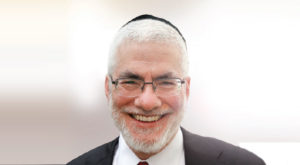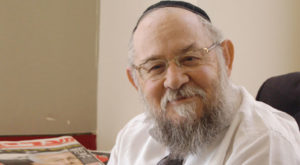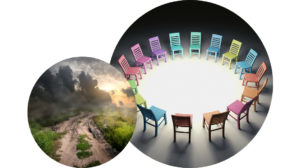Making the Ends Meet the Means
| March 10, 2021At the risk of being simplistic: Income must match expenses for the math to work
Alexandra Fleksher’s recent Perspectives column titled “Fuzzy Math” highlights a longstanding yet intensifying issue in our community. Large families, large mortgages in large cities,
At the risk of being simplistic: Income must match expenses for the math to work. Thus, the solution to the frum family’s financial dilemma must involve either increasing income or reducing expenses. What that specifically entails is the key question.
For the standard North American frum family today, the five largest items in the budget are: taxes; housing; food; transportation; and, particular to us as a middle-class community, tuition. A multipronged approach that incorporates both communal and individual measures could provide a panacea to our pocketbook problems. Here are eight steps we can take to build wealth, spend smart, minimize taxes, and plan ahead for life’s larger expenses.
- Strengthen high school general studies. It is no secret that many yeshivah high schools treat general studies with a minimalist attitude and a degree of neglect. But virtually every frum high school graduate will benefit from a more intensive “core curriculum” of English and math, as well as an introduction to computer science and information technology. Whenever a graduate joins the workforce, whether in klei kodesh, business, or in a profession, mathematical and technological literacy and the ability to communicate effectively will stand him or her in good stead.
- Personal finance education. As Mrs. Fleksher notes, organizations such as Mesila and others are doing yeoman work in empowering people with knowledge. Creating and promoting high-quality classes for young couples, as well as a personal finance curriculum for yeshivah high schools and Bais Yaakovs, will pay dividends for a lifetime. Teaching core concepts —behavioral finance, compound interest, the time value of money, insurance, price differences between store and name brands, the difference between speculation and investing, among others — as well as standard budgeting for a Torah household, and earning levels for jobs in various fields, are all imperative for the frum community’s financial future.
- Government advocacy for school funding. One area where our community has made progress in recent years is advocacy. The Agudah and the Orthodox Union, under the guidance of A.D. Motzen and Maury Litwack respectively, are working in state capitals to ensure that private schools receive an equitable share of public funding for, at the very least, general studies. At the risk of sounding trite, each person who gets involved in such efforts can make a difference for our schools and for our families, who bear the double burden of tuition and the property taxes that pay for public education.
- Post-high-school professional studies. Thankfully, today we have many kosher options for young men seeking professional training, when they and their mentors deem it advisable. Programs such as Touro, PCS, and FDU offer schedules that are compatible for a kollel yungerman or yeshivah bochur, and the opportunity to earn a college degree, under appropriate circumstances. Without minimizing the challenges to one’s ruchniyus in some environments, a professional degree has proven to be an excellent option for countless frum families.
- The tax code. Many people think their biggest expense is their mortgage or tuition. But between federal and state income taxes, sales, payroll and property taxes, and endless fees, it is virtually certain that your biggest outlay goes to Uncle Sam. Lowering one’s tax burden, with the various legal means available, can go a long way to making the numbers add up. Additionally, certain tax breaks are congruent with life events that are often part of a frum lifestyle (e.g., seminary). Here are three such avenues.
A 529 plan is a state-sponsored account in which you deposit after-tax money; it will grow tax-free, and withdrawals from the account are tax-free, if spent on legitimate higher education expenses, including yeshivah. This assistance was even further enhanced in 2017, when 529 accounts were expanded to up to $10,000 a year, including private K-12 education. Additionally, most states grant a state tax break for such contributions, contributions that in 2021 could be up to $15,000 a year per child.
With conservative assumptions of a 7 percent investment return and a 5 percent tax break on what is invested, imagine putting away just $1,000 a year per child for 17 years. For a family with four kids, the annual investment will get an immediate $200 tax break, repeated every year. More importantly, when your daughter is ready for seminary, or your son for beis medrash, you will have $33,000 at your disposal per child on a steady, manageable investment.
Individual Retirement Accounts (IRAs) and 401(k) accounts. Like everyone else, most frum people will retire, and with larger, tight-knit families, helping our children and grandchildren is a particular priority. Whether it be a 401(k) or an IRA on the one hand with their tax break up front, or a Roth 401(k) or Roth IRA, with the money growing tax-free and being taken out tax-free, these are today’s retirement essentials.
With old-style defined-benefit pensions going the way of floppy disks, the current contribution limit of $19,500 for a 401(k) plan and $6,000 for IRAs mean that, were someone to put away $10,000 a year and had a marginal tax rate of 25 percent, he would immediately save $2,500 in taxes that year. And while tax breaks are nice, long-term growth is far more valuable. Let us take a yeshivah and kollel (perhaps degree-holding) graduate, who enters the workforce at 27. While not easy, especially early on, investing $10,000 a year for the next 40 years, while earning 7 percent in a diversified low-cost Vanguard index fund, will lead to approximately $2.27 million and provide a secure retirement.
Health Savings Accounts (HSAs). My personal favorite is taking advantage of HSAs, which to my knowledge are the only triple tax-advantaged account that give you a break up front for contributing, give tax-free growth, and allow tax-free withdrawals. Assuming you have a high-deductible health plan (HDHP), you can save up to $3,600 individually or $7,200 for a family for future health expenses, earning tax breaks in the process. It also is known as a “stealth IRA,” in that if you want to just take it out at 65 for non-health purposes, it will be treated only as “double tax free” like an IRA. An HSA can be invested through low cost index funds in Fidelity. With its superb tax treatment, HSAs can be a key part of any long-term plan.
- Planning ahead. The key to the financial section above, and to areas of frum life that the IRS doesn’t consider (e.g., bar mitzvahs, weddings), is that it all works according to a general time frame when certain events will likely occur. Setting aside money in advance and letting the time value of money work is crucial.
When my sister became bas mitzvah in 1996, my father a”h began putting aside $50 CDN a month for her wedding, on his teacher’s salary. While such numbers would not cover a wedding today (even adjusting for inflation), putting away even a small amount every month creates a starting point and reduces the need to scramble and borrow later on. For short-term upcoming expenses, opening an online savings account with higher savings rates (e.g., Marcus) and sending consistent automatic deposits (even micro-investments) can make a real difference. For longer time frames, find a tax-advantaged account or a tax-efficient investment with appropriate risk commensurate with the timeframe.
- Don’t buy what you cannot afford. One might read this and think, “Obviously.” Unfortunately, following this basic tenet is easier said than done. Social pressure, convenience, and wishful thinking can lead to perpetual debt. Major purchasing decisions, such as your house and your car, need to be carefully considered beforehand, and must not be based on unrealistic salary hopes. Setting a monthly budget, planning for expenses, and putting aside an emergency savings fund for inevitable bumps will prevent overspending.
Personally, my wife and I make a budget every month. We include a small miscellaneous fund, ensuring the budget is a belt around our waists rather than around our necks. Despite the inconvenience, we also make two weekly grocery trips — one to the generally less expensive Shoprite, and one to the local kosher supermarket for the heimish items. This reduces our overall grocery bill by an estimated 25 percent. Finally, we build savings into the budget, giving every dollar a destination and further reducing our risk of overspending.
- Don’t buy what you can afford. If you can afford annual ski trips to Aspen, do you consider whether taking such jaunts increases social pressure in our community? Are you resetting the standard for a “normal” family vacation? Or even if you can afford a high-end simchah, does the largest band or the most upscale caterer truly enhance the event? Aside from influencing standards for others, it is arguably not the most judicious use of resources, even if you can personally afford it.
Institutionally, profligate spending on buildings and yeshivah weekends in Mezhibuzh sends the wrong message. No doubt people draw lines differently, but slowing “lifestyle creep,” avoiding Instagram-fueled materialism, and living not only within but even somewhat beneath our means, will all free up resources for longer-term investments, tzedakah, and keep our communal standards from spiraling in a way that will hurt everyone in the long run.
The Gemara relates when Jews were burying their dead in luxurious attire, Rabban Gamliel Hazaken protested the accompanying economic imposition and changed the custom to using burial shrouds, as is practiced today. Communally and individually, and with siyata d’Shmaya, we need to take similar steps to make the math add up today.
Shmuel Winiarz is a talmid of Yeshivas Ner Israel and an attorney who lives with his family in Clifton, New Jersey.
Originally featured in Mishpacha, Issue 852.
Oops! We could not locate your form.













